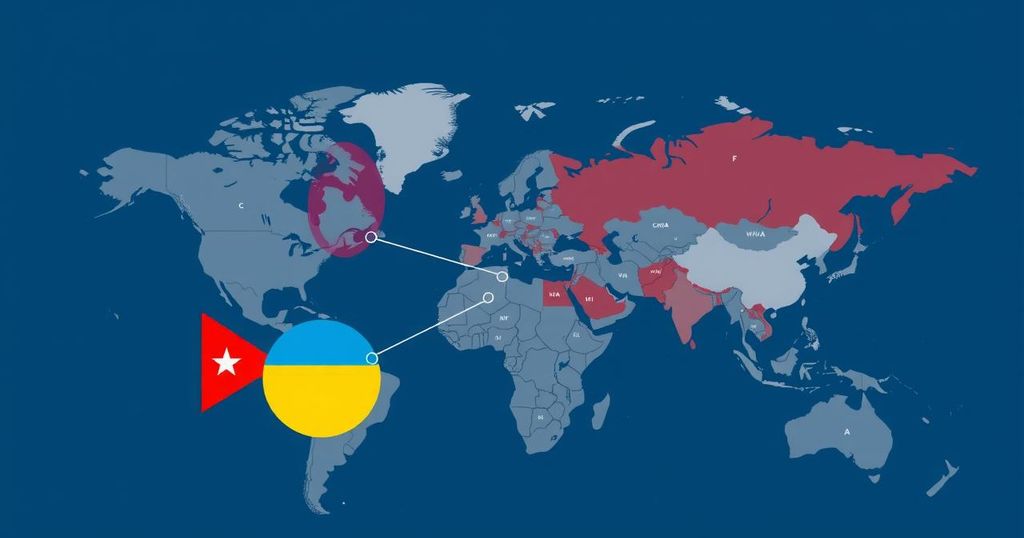Critique of the China-Brazil Peace Plan for Ukraine: A Destructive Proposition
Summary
China and Brazil’s joint six-point peace plan for Ukraine faces criticism from President Zelensky, who labels it “destructive” and counterproductive to Ukrainians’ efforts for peace. The plan, lacking mentions of territorial integrity or troop withdrawal, has sparked doubts regarding its true intentions. Despite claims of growing international support, skepticism surrounds the plan’s effectiveness and alignment with Ukraine’s needs.
A peace initiative involving a six-point plan has been put forward by China and Brazil, inciting strong backlash from Ukrainian President Volodymyr Zelensky. He vehemently criticized the proposal, labeling it as “destructive.” Introduced in May, the plan endeavors to offer an alternative to Ukraine’s own peace efforts directed towards negotiating an end to Russia’s ongoing invasion. This initiative has raised concerns regarding the implications of China and Brazil’s perceived alignment with Russia and their concept of peace for Ukraine. China maintains a stance of neutrality regarding the conflict, denying any provision of lethal assistance to either party. However, Western allies assert that China supplies essential resources to support Russia’s military operation. Meanwhile, Brazil’s President, Luiz Inacio Lula da Silva, has positioned himself as a mediator in the crisis, rejecting the notion of supplying arms to Ukraine. Notably, Lula has suggested that Ukraine should contemplate conceding Crimea in pursuit of peace with Russia. The six-point plan is delineated as follows: it encourages non-escalation from both parties, proposes an international peace conference endorsed by both Russia and Ukraine, seeks an increase in humanitarian aid to avert a larger crisis, emphasizes efforts to prevent nuclear proliferation, opposes strikes on nuclear facilities, and advocates for enhanced global cooperation to maintain industrial and supply chain stability. However, the plan conspicuously omits any reference to Ukraine’s territorial integrity or the retreat of Russian troops. President Zelensky has expressed disdain for the initiative, asserting that it counters Ukraine’s ongoing diplomatic maneuvering as evidenced by his 10-point peace formula advocating for the total withdrawal of Russian forces and accountability for war crimes. He pointedly stated, “You either support the war, or you don’t support the war. If you don’t support it, then help us stop Russia. What is the compromise in that? That’s why I think it’s destructive. It’s just a political statement.” China seems to be actively seeking support for the peace plan among developing nations, claiming increased backing since its introduction; however, the specifics of this support remain unclear. The broad opposition from Ukraine, combined with skepticism about the nature of the plan proposed by China and Brazil, highlights the complexities surrounding any potential resolution to this prolonged conflict.
The recent proposal for a peace plan regarding the Ukraine-Russia conflict by China and Brazil has spurred significant controversy, particularly among Ukrainian leadership. President Zelensky’s critique reflects concerns about the viability and intentions behind the plan, as it positions itself in direct contrast to Ukraine’s own strategies for a resolution. The backdrop includes ongoing tensions, warfare, and Russia’s defined aggressions, complicating any dialogue aimed at restoring peace. Moreover, the relativity of international stances towards the conflict and the balance of geopolitical interests remain crucial factors in the peace discussions.
The six-point peace plan proposed by China and Brazil is met with skepticism and outright rejection from Ukraine, particularly from President Zelensky, who sees it as a detrimental approach to the conflict. The plan lacks references to essential aspects such as Ukraine’s territorial integrity, stirring suspicion about the objectives of its proponents. The ongoing negotiations and proposals illustrate the complicated and multifaceted nature of peace efforts in the context of the Ukraine crisis, further complicated by international dynamics and relationships. Thus, Ukraine’s response emphasizes the necessity for plans that genuinely prioritize its sovereignty and security.
Original Source: kyivindependent.com








Post Comment